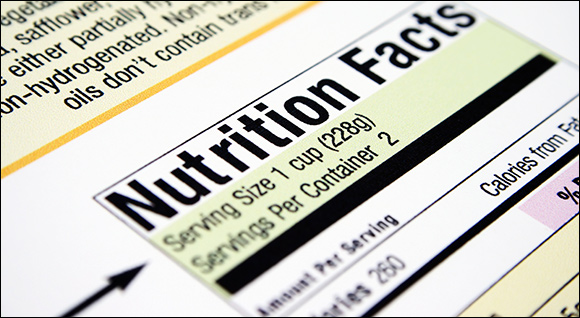Food labels spark class-action suits
By: KIMBERLY ATKINS, BridgeTower Media Newswires//September 17, 2012//
Food labels spark class-action suits
By: KIMBERLY ATKINS, BridgeTower Media Newswires//September 17, 2012//

Both sides say FDA regulations at least partly to blame
The increase in class-action litigation challenging labels on certain food products has consumer litigation attorneys taking notice, and laying at least part of the blame on federal regulators.
The lawsuits, brought largely under state and federal consumer fraud laws, target packaging labels on food products, beverages and supplements that make certain claims about nutrition or health benefits, claims a growing number of class-action plaintiffs allege to be false and misleading.
Defense attorneys say the claims are seeping in through a loophole in federal regulations promulgated by the Food and Drug Administration. Though the agency regulates label details of many food products, from ingredients to nutritional value, it does not define words such as “healthy” or “natural,” making the interpretation of those claims ripe for litigation.
Also, many FDA regulations fail to say explicitly whether they preempt state laws, thereby limiting defendants’ abilities to have the suits thrown out of court.
“In the end, I think the solution should be much stricter preemption standards,” said Ronald J. Levine, a partner in the Princeton, N.J., and New York offices of Herrick, Feinstein. “It’s much too costly for a company to engage in litigation over terminology where there could have been a clear, bright line articulated either in the law or by the courts.”
Members of the plaintiffs’ bar agree with defense attorneys on one front: FDA regulations are less than thorough.
But plaintiffs’ attorneys claim that due to the lack of strong rules and clear enforcement from the agency, consumers who are trying to make healthy food choices are left with insufficient protection from companies that make false or misleading claims, and the only recourse is to bring consumer lawsuits.
“People are really health-conscious and they want to eat well. They want to eat healthy food. So they are susceptible to gimmicks,” said Robert W. Mills of the Mills Law Firm in San Rafael, Calif., where he represents class-action plaintiffs. Companies “claim that their products are fortified with things like vitamins or fiber to get people to purchase them with the notion that it is healthier.”
Neither side expects a change in the climate soon, in part because the FDA is focused elsewhere, such as on promulgating regulations under the recently enacted FDA Food Safety Modernization Act.
That opens the door to lawsuits that some defense lawyers say are the product of crafty plaintiffs’ attorneys who target words such as “natural” or “organic.”
“Plaintiffs’ lawyers are being much smarter, and they are criticizing things on product labeling that are not clearly regulated by the FDA,” said Sarah L. Brew, a partner in the Minneapolis office of Faegre Baker Daniels, where she leads the firm’s food litigation and regulatory practice.
State-based consumer protection laws “are very important, and there are good reasons to have them,” Brew said. “But some of these cases are really more about lawyers looking for opportunities to make money than about protecting the public from actual fraud and deception.”
Members of the plaintiffs’ bar lay part of the blame with the FDA, but most with food product producers.
“They fill their labels with trumped-up claims about nutrition or health in an effort to distinguish them from their competitors,” said Joshua Boxer, who also represents plaintiffs at the Mills Law Firm.
So far, defendants’ efforts to assert preemption defenses in court have had mixed success, and recent U.S. Supreme Court precedent on the issue of preemption has provided little guidance. In the meantime, defense attorneys say it is difficult to advise clients on how to avoid liability when the standards vary widely from state to state and jury to jury.
“The FDA has the experience and know-how to address product labeling,” Brew said. “That is what it is charged to do.”
But even if the FDA were to step up its regulations, it would probably not completely stem this type of litigation.
“We also have to recognize that regulations cannot envision every conceivable label,” Levine said. “There can be arguable ambiguities in laws which then have to be interpreted for specific cases.”
Legal News
- Milwaukee’s Common Council now has the most African Americans, women and openly LGBTQ members ever
- Office of School Safety Provides Behavioral and Threat Assessment Management Training Ahead of 25th Anniversary of Columbine Shooting
- Wisconsin Supreme Court to hear arguments in Democratic governor’s suit against GOP-led Legislature
- Lawsuit asks Wisconsin Supreme Court to strike down governor’s 400-year veto
- Wisconsin man pleads not guilty to neglect in disappearance of boy
- ACS Selects University of Wisconsin Law School’s Miriam Seifter for 2024 Ruth Bader Ginsburg Scholar Award
- People with disabilities sue in Wisconsin over lack of electronic absentee ballots
- Wisconsin Republicans ignore governor’s call to spend $125M to combat ‘forever chemicals’
- Native American voices are finally factoring into energy projects
- Steven Avery prosecutor Ken Kratz admits ‘mistakes were made’
- Colombian national extradited to Milwaukee faces International narcotics-trafficking conspiracy charge
- MPD: Milwaukee homicides down nearly 40 percent compared to last year
WLJ People
- Power 30 Personal Injury Attorneys – Russell Nicolet
- Power 30 Personal Injury Attorneys – Benjamin Nicolet
- Power 30 Personal Injury Attorneys – Dustin T. Woehl
- Power 30 Personal Injury Attorneys – Katherine Metzger
- Power 30 Personal Injury Attorneys – Joseph Ryan
- Power 30 Personal Injury Attorneys – James M. Ryan
- Power 30 Personal Injury Attorneys – Dana Wachs
- Power 30 Personal Injury Attorneys – Mark L. Thomsen
- Power 30 Personal Injury Attorneys – Matthew Lein
- Power 30 Personal Injury Attorneys – Jeffrey A. Pitman
- Power 30 Personal Injury Attorneys – William Pemberton
- Power 30 Personal Injury Attorneys – Howard S. Sicula











